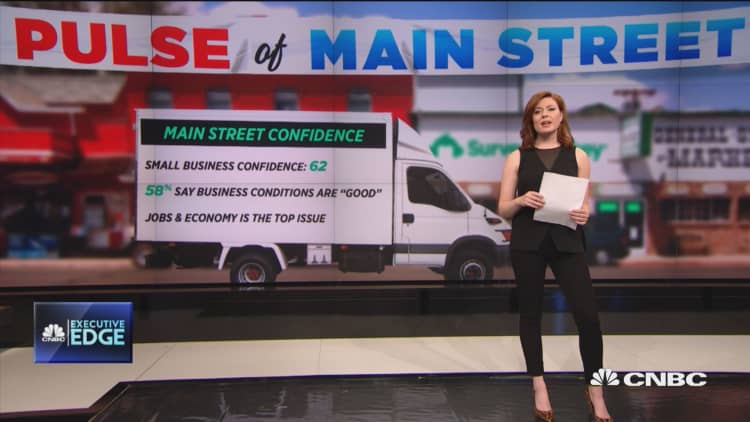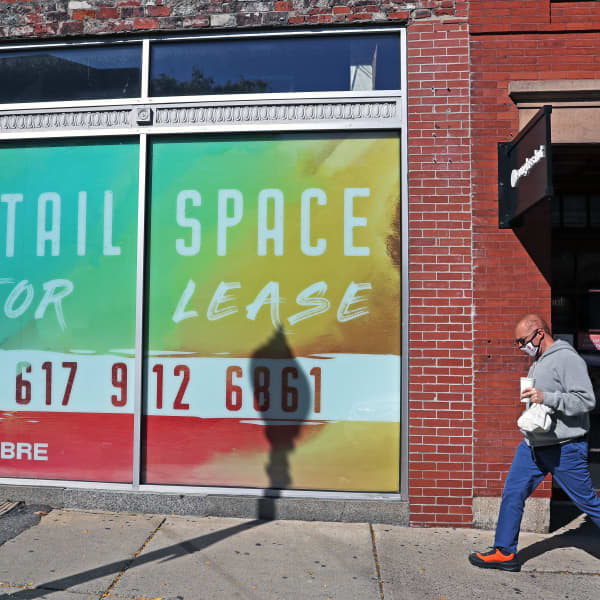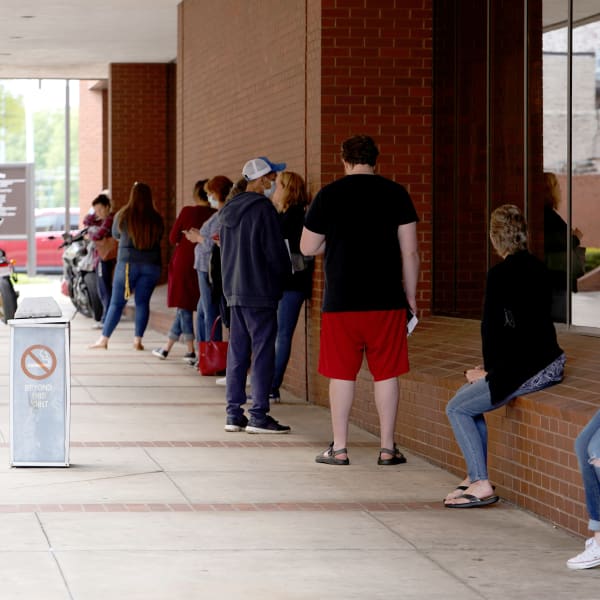Small-business owners report record-high hiring expectations, while at the same time admitting some troubles filling open roles. Companies of all sizes are currently facing the pressures of a labor market at 3.9 percent unemployment and a booming economy, but small businesses may be particularly squeezed.
According to the latest CNBC|SurveyMonkey Small Business Survey, some 33 percent of small-business owners expect to hire additional full-time workers this year, seven percentage points more than a year ago and a new high mark in this quarterly survey.
But about half that number — 16 percent — say they have roles open right now that they have been unable to fill for at least three months.
Small businesses with 50 or more employees are both the most likely to say they plan to increase their headcount in the next year and are the most likely to have open positions. More than half of small-business owners with 50 or more employees (55 percent) are planning to expand their teams, and 41 percent have roles open now.
Small business owner annual hiring plans
| Small business owner survey responses by size | Increase | Stay the same | Decrease |
|---|---|---|---|
| All small business owners | 33% | 59% | 7% |
| 0-4 employees | 26% | 68% | 5% |
| 5-9 employees | 41% | 47% | 12% |
| 10-49 employees | 46% | 47% | 8% |
| 50 or more employees | 55% | 38% | 8% |
Source: CNBC/SurveyMonkey Small Business Survey, Q3 2018
Why it is so hard to find workers
A big plurality (45 percent) of small-business owners blame a lack of workers with the right education or training. In labor economics parlance, this is known as the skills gap, meaning that employers expect new hires to come in on day one with more advanced skills or deeper learning than the actual job candidates have.
Another 28 percent of small-business owners point the finger at competition from large corporations, who can offer potential employees higher salaries, better benefits and other perks that small businesses cannot offer. Jointly, another 18 percent attribute hiring troubles to the current low unemployment levels. With unemployment at a low rate, job seekers benefit from a labor market in which companies, large and small, are trying to outbid the competition.
Small businesses in the finance and insurance industries are the most apt to see education and training as the largest impediments to hiring: 63 percent single this out as the primary reason. Concern about competing with big companies peaks among those in the health-care and social-assistance category.
Where small businesses should be looking
About three-quarters of people who are currently employed full-time work for large corporations, while just a quarter work for small businesses, according to the survey. A much higher percentage of part-time workers, nearly half, work for small businesses.
With hiring expectations at a relative high point among small-business owners, their pool of job seekers should be strong. Nearly half of people in the survey who were not small-business owners (48 percent) say they don't have a preference between working for a large corporation or a small business, with 27 percent saying they'd prefer to work at a small business and 23 percent preferring a large corporation.
Those who want to work for a small business tend to be older. More than half of people 65 and over (52 percent) would prefer to work for a small business rather than express indifference or work for a large corporation. Twenty-eight percent of young adults, those age 18 to 29, are the most likely to want to work for a large corporation; that's more than twice as many as those 65 or older (13 percent).
But the strongest predictor of enthusiasm for small businesses is a person's current employment status. Those who already work for a small business, whether in a full-time or part-time role, are more likely than anyone else to say they'd prefer to work for a small business.
More than half of full-time small-business workers (57 percent) and part-time small-business workers (51 percent) say they prefer to work for a small business. Compare those results to the numbers among corporate workers: Just 36 percent of full-time and 32 percent of part-time employees say they prefer to work for a large corporation — but they already work at one.
This may be the advantage that small businesses have in hiring: Their employees are more content with their job situation compared with those who work for larger corporations. Regardless of the salary packages that big businesses can offer potential hires, it's hard to compete with that satisfaction.
— By Jon Cohen, chief research officer, SurveyMonkey, and Laura Wronski, research scientist, SurveyMonkey
The CNBC/SurveyMonkey Small Business Survey is conducted quarterly using SurveyMonkey's online platform and based on its survey methodology.





